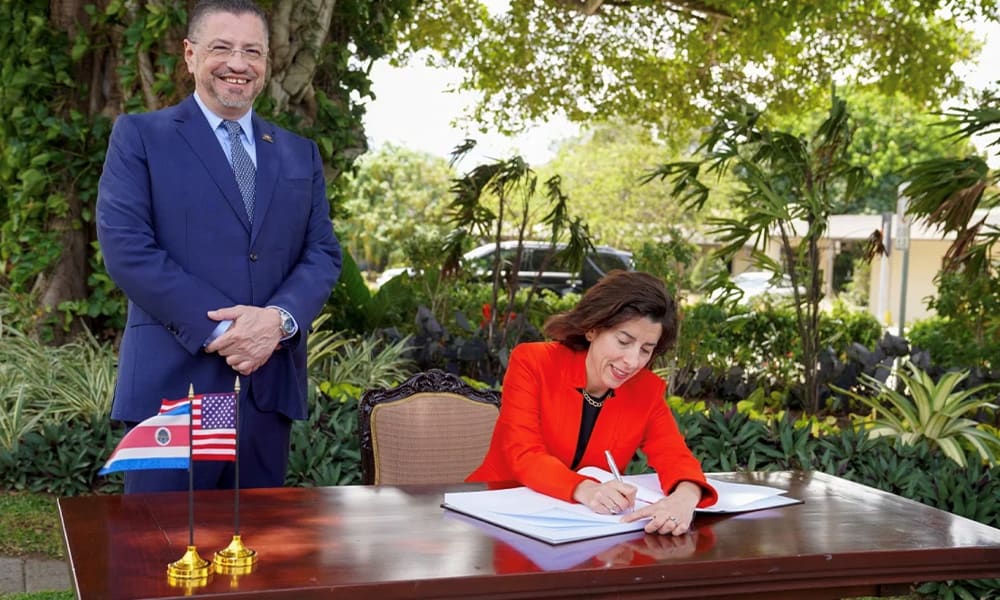The U.S. Army Southern Command has announced a new cooperation package for Costa Rica, comprising the delivery of four scanners for inspecting cargo passing through the country’s ports.
This announcement was made during an official visit to Costa Rica this Friday, where representatives of the Southern Command met with President Rodrigo Chaves at Casa Presidencial.
Commander Laura Richardson, leader of the military corps, provided detailed information, confirming the assistance of the State Department and the Senate for the project.
In addition to supplying the machines, the U.S. Government will furnish the necessary additional infrastructure and training to the security forces operating the scanners.
“Regarding security matters, we’ve announced the financing of four scanners, along with investments in training and tools to combat drug trafficking, which the Chaves Robles administration has been pursuing,” stated President Chaves.
As for the logistics of the scanners, Minister of Security Mario Zamora mentioned that a technical visit will occur after Easter, in April, to finalize details.
The equipment will be installed in Japdeva, Caldera, Peñas Blancas, Tablillas, and Paso Canoas. Minister Zamora also noted that priorities would be determined following this mission review.
“From this point forward, a phase of technical collaboration begins, involving both the U.S. Embassy in Costa Rica and the Southern Command,” he said.
The Chaves Robles administration views the placement and utilization of these control devices as critical in combating the escalating drug trafficking.
This announcement comes at a crucial juncture, given recent revelations of a significant decline in drug seizures, particularly cocaine, within the country. On multiple occasions, authorities in European countries such as Spain and the Netherlands have reported discovering drugs concealed in shipments originating from Costa Rican ports, often concealed within products like fruits to evade detection and facilitate transfer.






